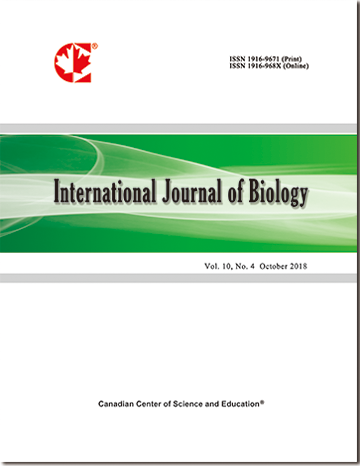Comparison of Okadaic Acid Profiles in Mussels and Oysters Collected in Mediterranean Lagoon, Tunisia
- Imène Kacem
- Noureddine Bouaïcha
- Béchir Hajjem
Abstract
Produced by marine microalgae, okadaic acid is a highly selective inhibitor of protein phosphatases, as well as being a potent tumour promoter. In this paper, we report on a comparison of the toxin profiles in mussels and oysters by protein phosphatase inhibition assay (PP2A) and liquid chromatography with fluorescence detection (HPLC). Samples of Mytilus galloprovincialis and Crassostrea gigas, were harvested from Bizerta lagoon during 8 months. All of the mussel samples (November excepted) were found to be contaminated with OA to levels of about 10.2 eq µg/100 g wet weight (PP2A assay). However, OA-group in oysters were detected only from April to July to a maximum limit of 1.45 eq µg/100 g wet weight (PP2A assay). Overall, levels were 10–70 times greater in mussels. The results showed that OA-group toxins appeared to be reduced at a faster rate in oysters (t1/2 = 9 days) compared with mussels (t1/2 = 18 days).
- Full Text:
 PDF
PDF
- DOI:10.5539/ijb.v2n2p238
Index
- ACNP
- AGRICOLA
- BASE (Bielefeld Academic Search Engine)
- CAB Abstracts
- CiteFactor
- CNKI Scholar
- CrossRef
- DTU Library
- Elektronische Zeitschriftenbibliothek (EZB)
- Excellence in Research for Australia (ERA)
- Google Scholar
- Infotrieve
- LIVIVO (ZB MED)
- LOCKSS
- Max Planck Institutes
- MIAR
- PKP Open Archives Harvester
- Qualis/CAPES
- ResearchGate
- ROAD
- SafetyLit
- SHERPA/RoMEO
- Technische Informationsbibliothek (TIB)
- Universe Digital Library
- WorldCat
Contact
- Ryan JonesEditorial Assistant
- ijb@ccsenet.org
